How Russians changed my life: Martin from The Netherlands
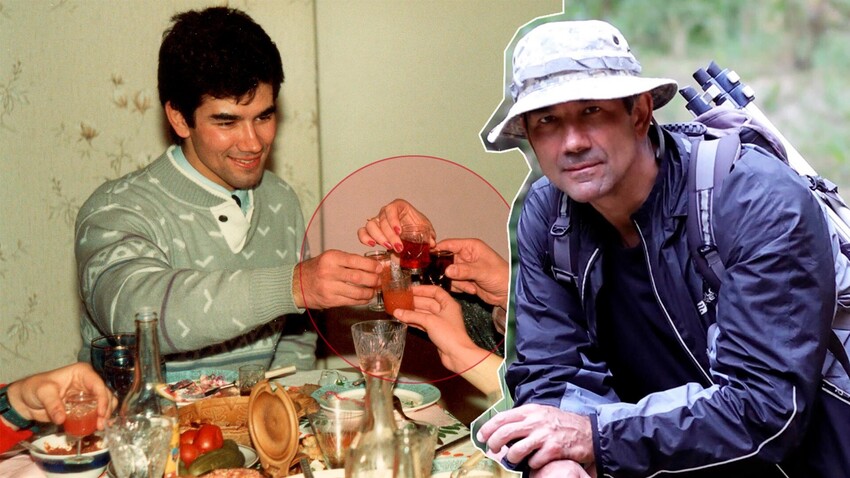
Martin in the 1990s and now
Personal archiveJust before the fall of the USSR, Martin was sent to Moscow to help set up the production of compact discs at a factory run by Soviet record label ‘Melodiya’. He was 30 years old at the time and had doubts about going to Russia. As a child, he grew up in Amsterdam during the Cold War and was raised under a constant threat from the Dutch media that, at any time, the “red danger” could invade Europe. He remembers being scared of a nuclear attack every time a plane flew over his neighborhood. When he served in the Dutch army, a large part of his training was focused on defending his country from the Russians. This personal history made his first business trip to Russia very special for him.
His prejudices about the strong presence of police were confirmed when he arrived in Moscow. “I was checked everywhere. Times when I arrived in my hotel were documented. I couldn’t get in a restaurant [sic] without a reservation. I didn’t even know what a restaurant was called, because I was unfamiliar with Cyrillic writing. I remember reading the Russian letters as Roman, calling it “pec-to-pah” (ресторан). During that first week, I wanted to go back home,” Martin says.
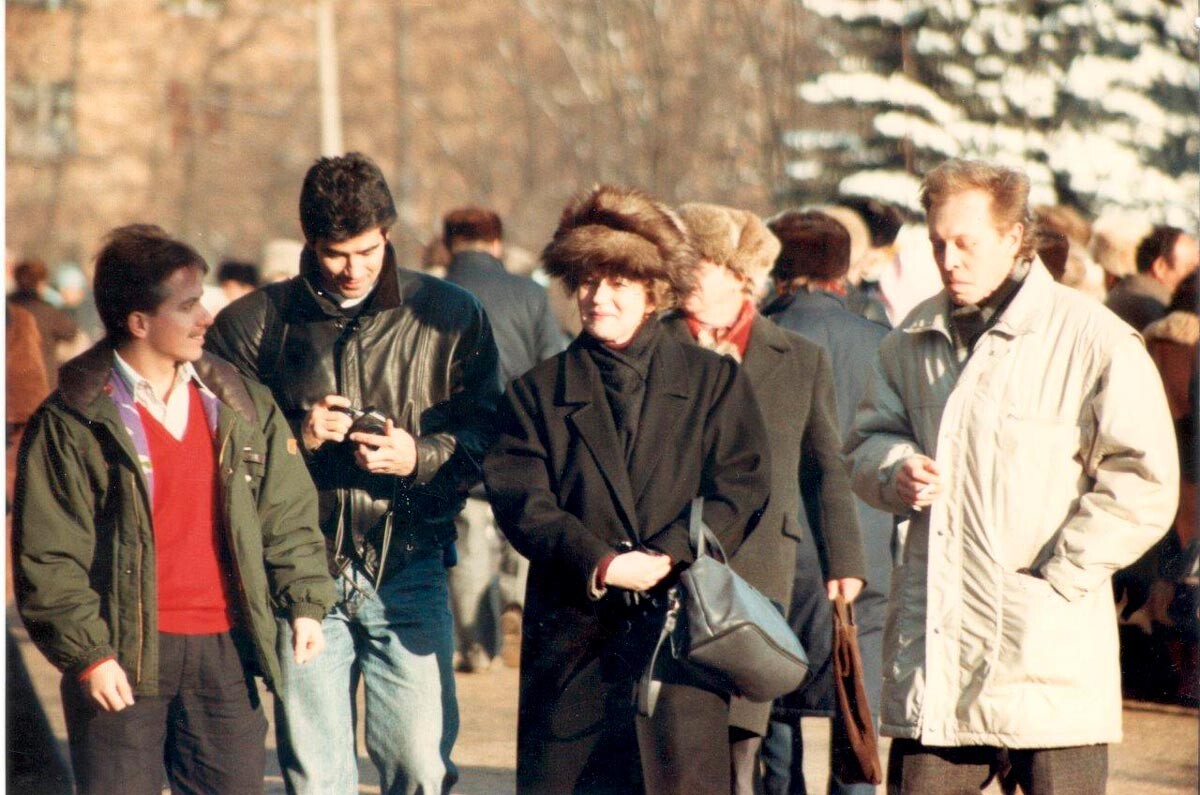
Melodiya city tour with a KGB guide
Personal archiveMartin then asked a fellow expat for help, because he felt lost. His colleague took him under his wing and showed him nice places to eat. There, Martin met some Russian people who invited him to a birthday party at someone’s house simply by using sign language. “There, I saw a completely different world. The hospitality with which I was welcomed into the home of strangers was a unique experience. The tight family ties, the food, songs, toasts. I was overwhelmed with warmth.”
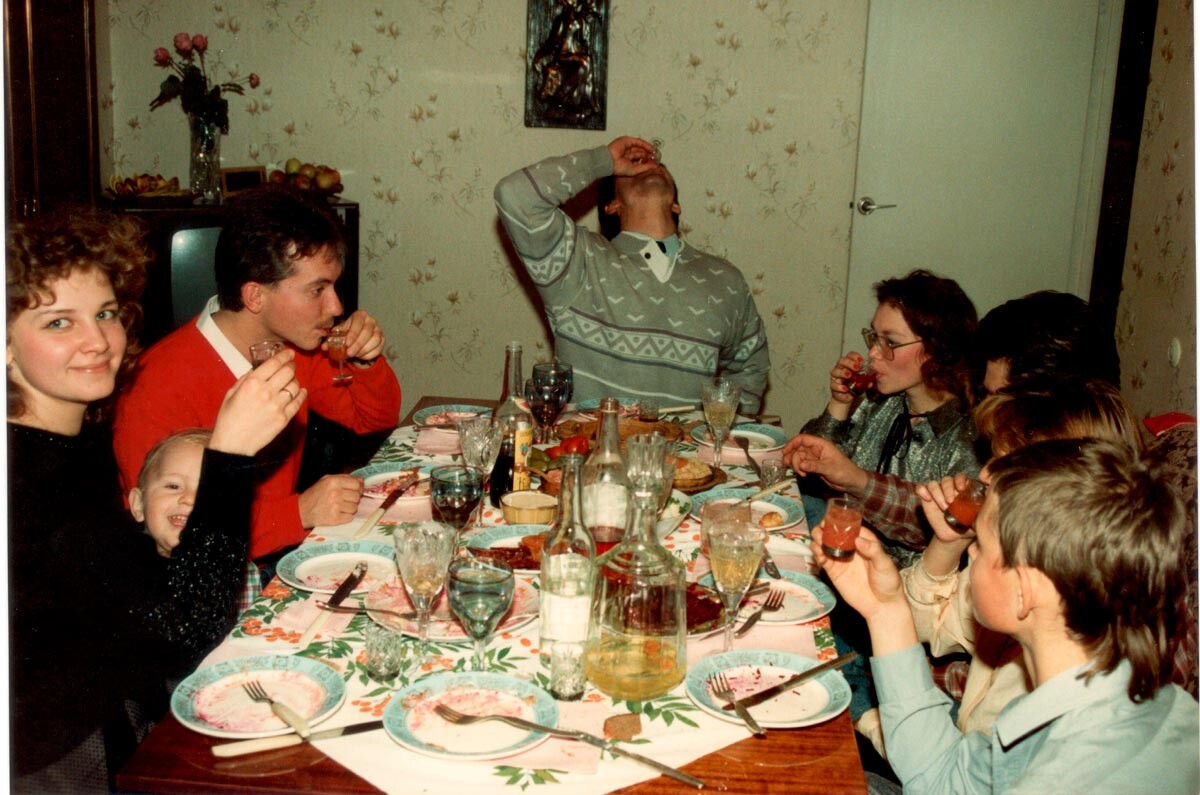
At Russian friends' home, February 1990
Personal archiveMartin saw the transition from socialism into a free market economy when the USSR fell. When he first came to Russia in 1989, Gorbachev was president and the socialist ways were still very present. “The level of bureaucracy was extremely high, but I always felt safe. This changed after I came to Russia for the second time after the alleged coup took place. Under Yeltsin, the hotels and level of luxury hugely improved, but it had become a dangerous country. Criminality, also among citizens, skyrocketed. We couldn’t go anywhere without personal security. One time, a shooting took place in a restaurant where I was having dinner. That was the scariest moment I had in Russia,” Martin says.
After learning basic Russian, Martin got to know his wife Yelena at a party. He says that him being attracted to her had nothing to do with her Russian nationality. Martin just found her a very special person. Regarding the question about differences between Russian and Dutch women, he believes there is no short answer. “Russian women stick to the traditional male/female roles. A man should provide for the house, while the woman takes care of it. Russian women don’t lower themselves at all by believing in this tradition, but they do strictly hold on to their role as wives.”
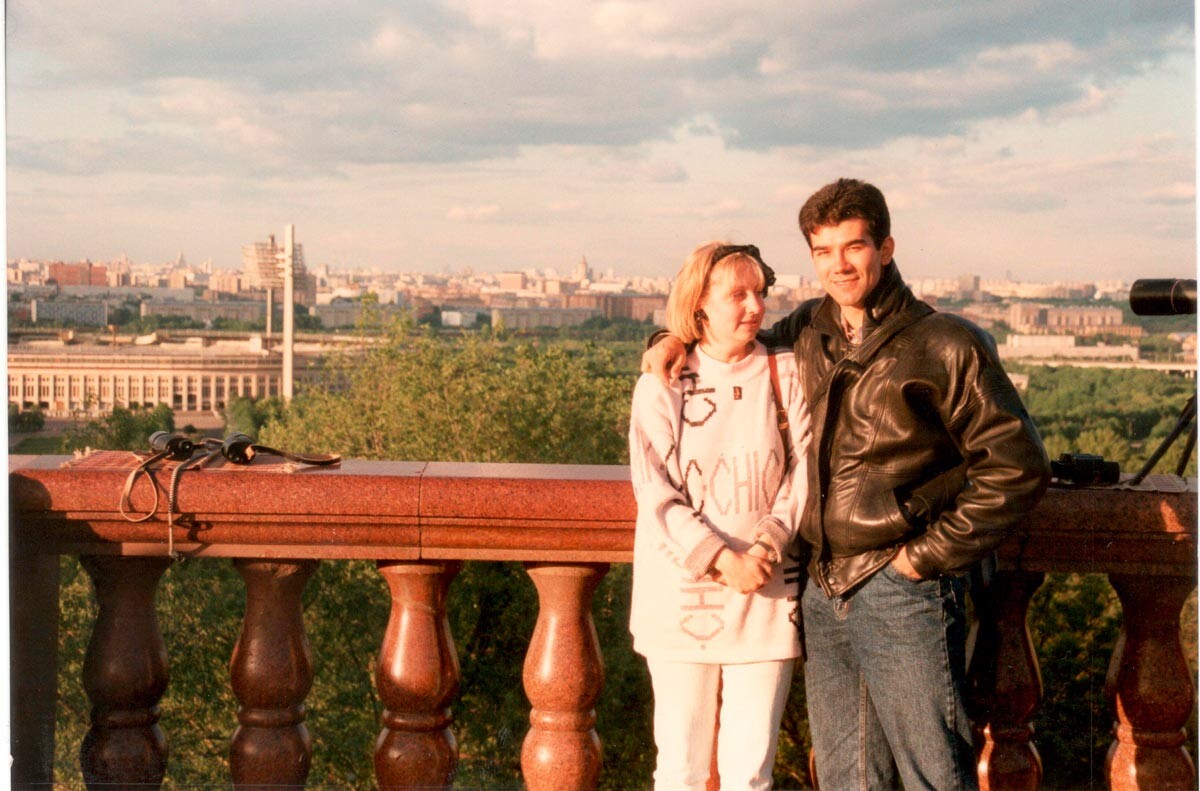
View from Vorobyovy Gory observation deck with Yelena
Personal archiveAfter spending three years in Russia, Martin returned to The Netherlands with Yelena and her son. He took many habits and memories with him that affect his life to this day. He still enjoys Russian dishes, such as solyanka, borsch, plov and pelmeni. But what inspired him most were the Russian people.
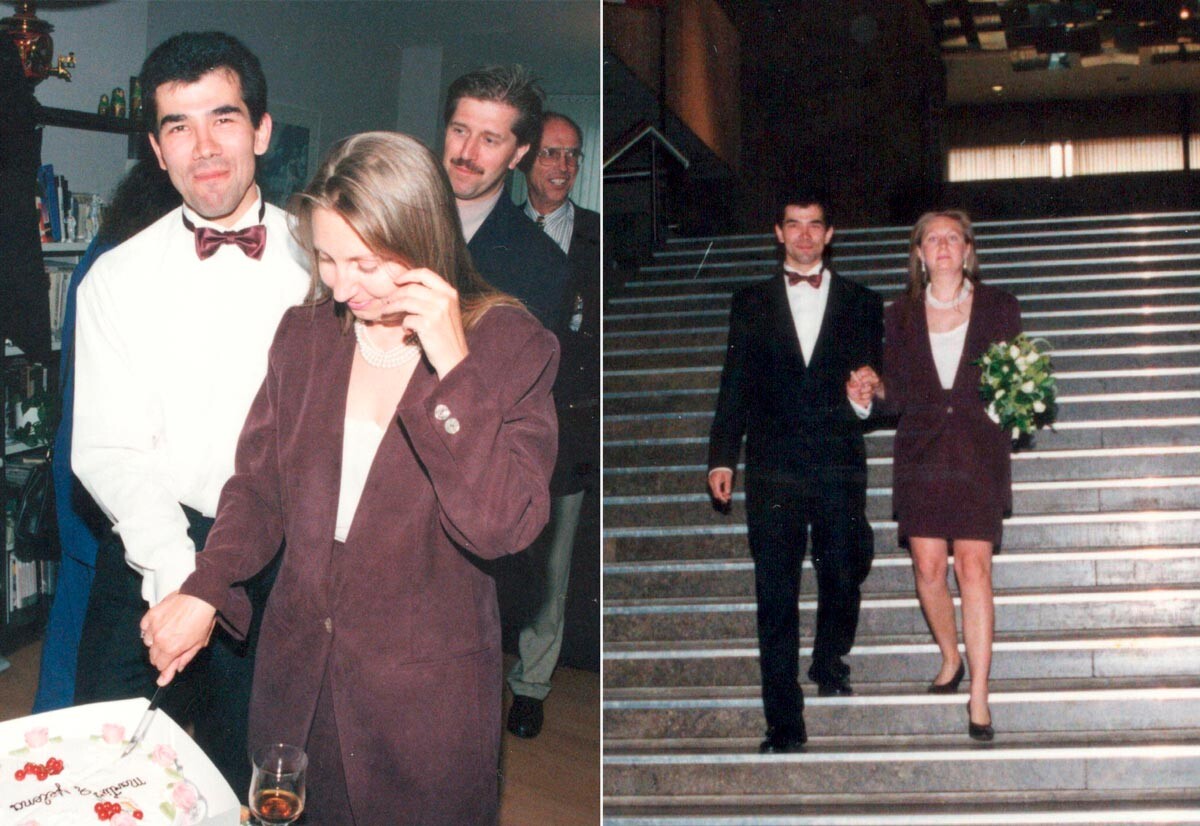
Wedding of Matin and Yelena, 1993
Personal archive“The Russians are more resilient than any other people I’ve met. Because of years of oppression and uncertainty, they had to be inventive in all of their ways. They developed a shield around themselves that seems impossible to penetrate. Nothing can kill the spirit of the Russian people. And this also goes for their innovative minds. I was astonished when I saw the level of education in Russia, especially on a cultural level. I would describe the Russian people as fearless, proud, inventive and highly intelligent,” Martin says.
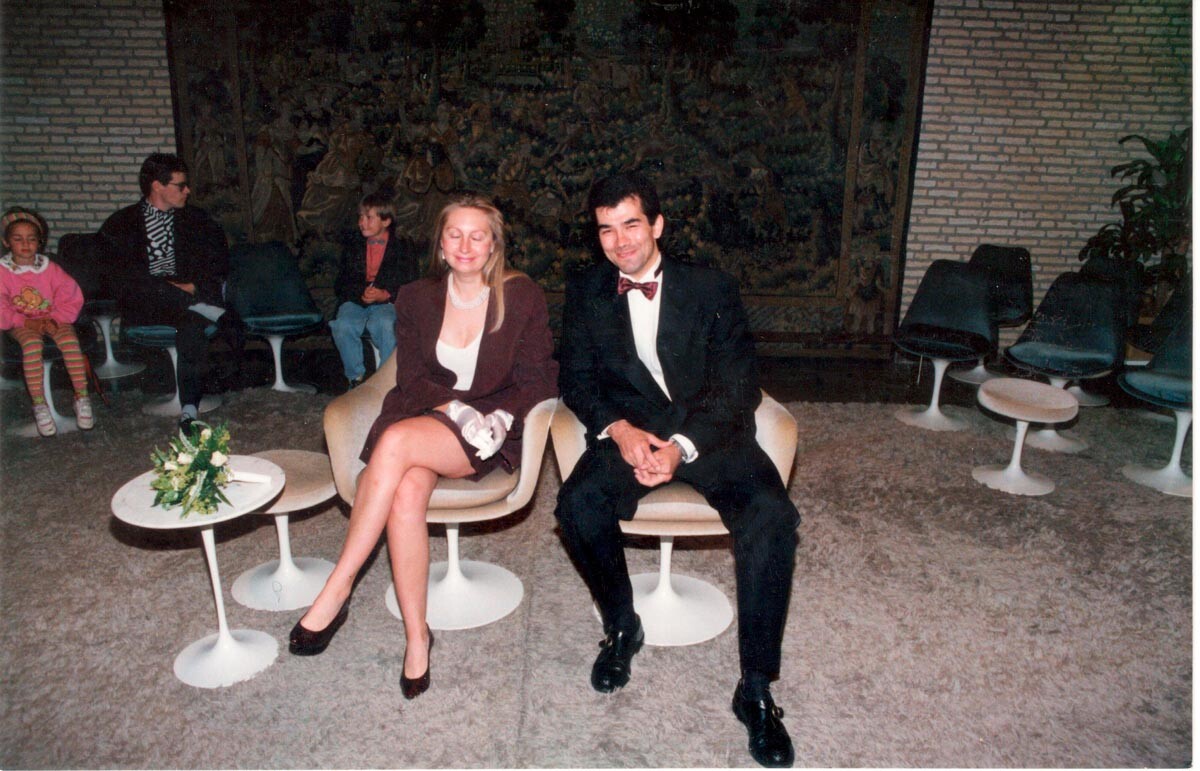
Wedding of Matin and Yelena, 1993
Personal archiveMartin has been living in The Netherlands again for quite some time now. But he is considering going back to Russia, should the situation in Europe get worse. “I’m worried about the level of control the government now imposes on citizens in Europe. I understand that Russia has its downsides, too, but I don’t think the Russian people will accept inhuman laws and measures that are accepted by the majority of people here in Holland. The Russian spirit is not made for that. Perhaps that’s why I see Russia as a good place to live once again.”
If using any of Russia Beyond's content, partly or in full, always provide an active hyperlink to the original material.
Subscribe
to our newsletter!
Get the week's best stories straight to your inbox